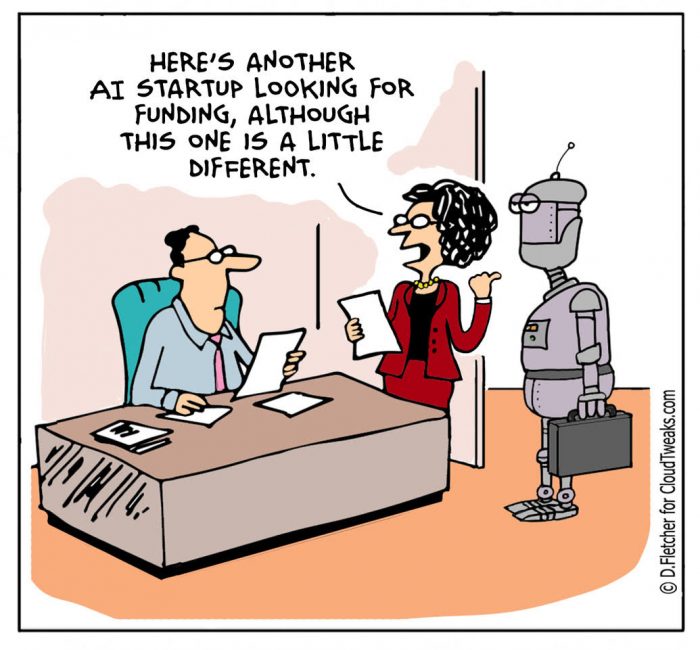The Coronavirus Pandemic has taught us that organizations must have remote work choices. It is no longer possible to work in a digital environment. The use of remote work and Work From Home (WFH) has exploded, and businesses are enacting rules to allow workers to work from home.
It might be difficult to keep track of work updates and task plans for each team and resource while this transformation is going places. AI-enabled technologies are a good way to deploy and manage remote work techniques and boost workflow efficiency.
The rise of remote work matches the rise of artificial intelligence (AI) in many respects. It wasn’t long ago that artificial intelligence was relegated to science fiction. AI, like remote work, now has the potential to change practically every sector and corporation. Looking ahead, AI will probably certainly hasten our move to remote work following Covid-19.

How AI is Transforming Workflows for Remote Workers
It is vital to promote a sense of healthy communication across teams at all levels. AI-driven products can be extremely beneficial to businesses. There are specialized meetings solutions available on the market that are powered by artificial intelligence and make remote collaboration a breeze.
Because meetings are such an important aspect of any organization, AI solutions can assist managers in ensuring that everyone is on the same page and that things go smoothly. During meetings, AI systems may automatically gather and deliver information, as well as construct dynamic Minutes of Meeting (MoM).
Remote working is predicted to skyrocket in the next years, thanks to AI-powered smart cloud solutions. When it comes to communicating with consumers and workers, new collaboration technologies are forcing businesses to totally restructure their processes. Virtual meetings, for example, have become an integral aspect of remote working. There are AI-powered solutions that can help make virtual meetings more interesting and productive.
As Remote Work Continues, What is AI’s Role?
Working from home might be difficult if you don’t have a suitable setting to work in. Those who already work remotely understand how difficult it is to set work limits when life is occurring all around them, and they are well aware of the temptation to log back on after business hours have passed.
AI, on the other hand, can assist remote employees in adhering to the finest WFH standards. Employees can use internet tools to assist them in discovering faults in their job so that they can complete them on time. They can assist increase the productivity of help-desk tickets, which can decimate the time it takes to resolve technical difficulties that disrupt remote workers’ hectic schedules.
How can AI Improve Remote Work Communications?
Organizations are employing automation solutions such as Artificial Intelligence and Robotic Process Automation to automate regular activities. Chatbots powered by AI automate communication procedures in a similar way. Employees may converse organically with chatbots to address difficulties.
If a remote worker wants to open an IT ticket, they may simply tell the chatbot about their problem, and the chatbot will route the request appropriately. What used to be a time-consuming and laborious procedure has been streamlined. If requested, the chatbot will follow up on the request and give the status.
To boost staff productivity, virtual collaboration technologies are essential. Collaboration technologies make it possible for remote teams to work together, even if they are in separate places. Remote workers may use the communication tools to have team meetings where they can see each other via video chats, discuss significant business issues, record the entire conference for future reference, and many other capabilities.
You may also communicate with teams or people in real-time, receive feedback, and receive notifications using the tools. All of these features and capabilities aid in improving service flow, saving time, and increasing team productivity. As a result, you become more thorough and less obtrusive.
Smart Project Management with AI
Project management is a difficult undertaking that entails determining if the project is on time and on budget, forecasting project interruptions, and resolving various disruptions, among other things. Status reports, analytics, and insights are some of the things that are provided by project management software.
Project management teams cannot link the data points and make educated judgments despite having tools for each of these responsibilities. This is where Artificial Intelligence can help.
The capacity of AI to extract insights from project data provides visibility into employee productivity and performance, which is crucial for a remote workforce. Leaders may use AI-driven analytics to create, measure, evaluate, and simplify important performance metrics.
Leaders can utilize this information to re-strategize their efforts to achieve their objectives. Improve project management as well with powerful dashboard analytics. Stakeholders will benefit from improved openness and accountability because of AI.
Accessible Cybersecurity
AI and machine learning are becoming increasingly important in information security because they can quickly analyze millions of data sets and hunt down a wide range of cyber risks, from malware to shady conduct that might lead to a phishing assault.
The importance of AI in cybersecurity was investigated by Capgemini Research Institute, and their paper, Reinventing Cybersecurity with Artificial Intelligence, strongly indicates that modern organizations need to reinforce their cybersecurity defenses with AI.
Because cyberpunks are already using AI technology to perform cyberattacks, the survey’s respondents (850 executives from cybersecurity, IT information security, and IT operations from ten countries) feel that AI-enabled reaction is vital.
Easy Troubleshooting
Because they don’t have rapid access to IT assistance, remote workers are frequently forced to solve issues on their own, which may be inefficient. In reality, most work-from-home issues are tech-related, whether it’s inconsistent internet connections or malfunctioning software. Individuals can handle most technological challenges on their own, thanks to AI.
Wipro HOLMES features a real-time AI bot to answer questions and help you through the troubleshooting process, besides its portfolio of manuals and modules. They may help with a variety of difficulties at the home office, including plugin issues, ActiveX controls, and more.
Companies can use an intelligent virtual agent to systematize all of their troubleshooting expertise and bring it to life. This virtual agent functions similarly to a doctor for technological systems, narrowing down potential solutions to the problem by asking diagnostic questions and improving with each contact.
Current research and early implementations in the software industry reveal the ability to identify flow abnormalities and cognitive anomalies inside logs with extremely exact findings. In the case of logs, the future is structured logging, which standardizes how logs are produced, while firms also use more advanced deep learning models to discover abnormalities automatically.
Automated Admin Work
Today’s limited AI choices assist practitioners in automating routine operations while improving overall experience. It can create the ideal balance between technology and human contact when done correctly.
Tom Davenport, a professor who studies information technology and management at Babson College says, “When paired with robotic process automation, AI significantly expands the number and types of tasks that software robots can perform.”
AI-based solutions assist agents in handling back-office duties, allowing them to focus on higher-value jobs. Advanced AI, for example, can evaluate enormous amounts of data from a variety of sources, making data classification and categorization simple and aiding back office optimization. An AI-assisted system does the mundane/repetitive activities on behalf of agents, freeing up support teams’ capacity for more vital duties.
Conclusion
As the home and workplace become more integrated, technology will continue to adapt to these new work environments. Despite the fact that remote work might be difficult, AI-based products should make our life a little simpler.
As remote workers adjust to new and often unpredictable situations, tech experts recognize that much work has to be done in order to provide the best possible experience for both companies and employees. The good news is that we are entering a new period of invention, as well as an acceleration in the use of well-established technologies.
By Ashwini Dave

The ‘Cloud Syndicate’ is a mix of short term guest contributors, curated resources and syndication partners covering a variety of interesting technology related topics. Contact us for syndication details on how to connect your technology article or news feed to our syndication network.
